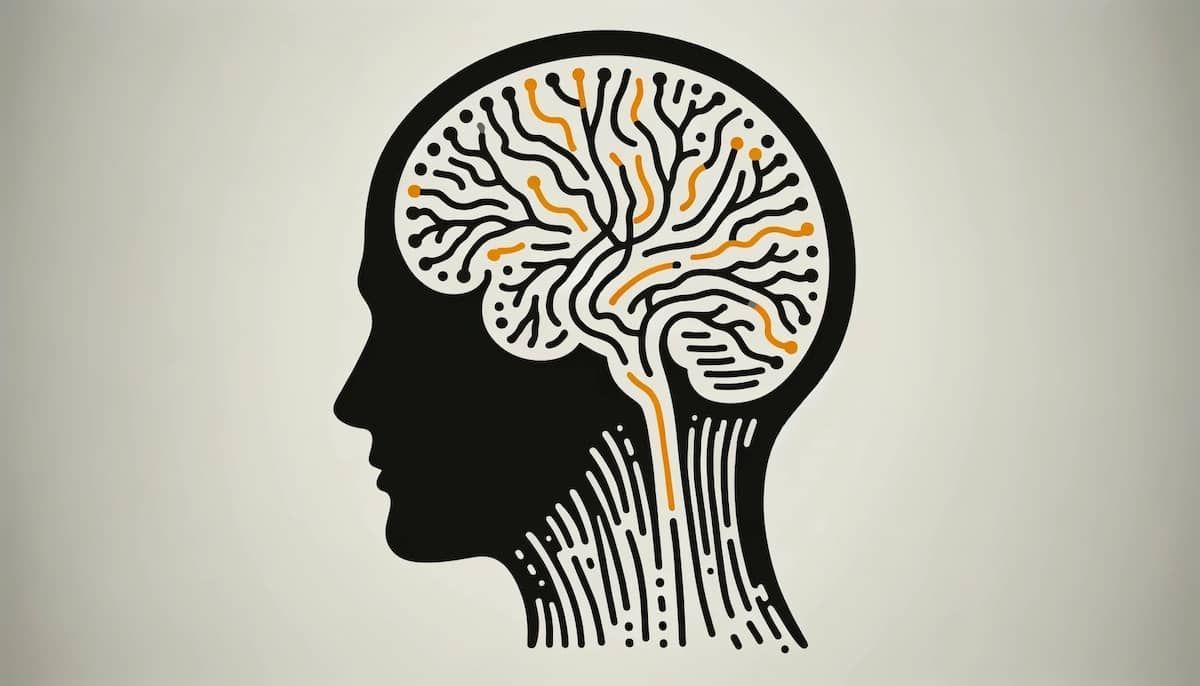
July 27, 2025
The limits of artificial intelligence

Founder/CTO The Spatial Studio, Technology-Enthusiast

Artificial intelligence (AI) has found its way into many areas of our lives, from virtual assistants like Siri and Alexa to deep learning models that enable businesses to analyse data or optimise processes. While AI has made many tasks more efficient and effective, there are limits to the technology.
As the technology becomes more widespread, its limitations become more apparent. While AI can automate many tasks, it cannot be creative.
In addition, AI works with data, which can limit its ability to make decisions due to biased or insufficient data. AI also has a limited understanding of context, which can lead to poor decisions.
Finally, AI lacks emotional intelligence, which is crucial in many areas such as healthcare and customer service. These limitations have significant ethical implications and can have a profound impact on our society.
A brief overview of the typical limitations of artificial intelligence:
| Limits | AI Description |
|---|---|
| Creativity and imagination | Artificial intelligences can perform tasks based on algorithms, but they lack real imagination. |
| Emotional Intelligence | They have difficulty understanding relationships and often misinterpret information. |
| Emotional intelligence | They lack emotional awareness, empathy, and the ability to understand and respond appropriately to human emotions. |
| Data Skills | Artificial intelligence is highly dependent on the availability of data. |
| Ethics and morals | Decisions can raise ethical concerns such as bias, racism, etc. |
| Cyber Attacks | AI models can be manipulated or fooled by carefully crafted inputs. Hacking is also a concern. |
| Computing power | Algorithms, especially deep learning models, often require significant computing resources. |
| Common sense | Difficulty understanding common sense concepts that humans take for granted in everyday decision-making. |
| Understanding | Despite impressive capabilities, AI lacks a true understanding of the world, merely processing data and patterns. |
Is the project possible? If you are wondering if a project is feasible with the current state of technology, you can always contact us to discuss a project.
Lack of creativity
One of the biggest limitations of AI is its lack of creativity. While AI can be trained to perform certain tasks, such as recognizing patterns or making predictions, it is not capable of coming up with truly original ideas or creations.
Creativity is a fundamental aspect of human intelligence and has played a key role in shaping our society. For example, art and music are an essential part of our cultural heritage, and science and technology have evolved thanks to innovative and creative ideas. AI, on the other hand, can only be creative within the confines of the data it has been trained on, making it difficult to create something truly original.
Although artificial intelligence has been used to create music and art, these creations are often limited to mimicking existing styles or patterns. For example, an AI system can be trained on a dataset of famous paintings and then create new images that resemble those paintings. These images may be impressive, but they are not truly creative because they do not contain new or original ideas.
The lack of creativity in AI has significant implications for fields that rely heavily on creative thinking, such as design, art, music, and literature. While AI can automate some aspects of these fields, such as image or audio processing, it cannot replace the human experience of creating something new and original.
This limitation reminds us of the importance of human creativity and the need to ensure that AI is used responsibly and beneficially, complementing human intelligence rather than replacing it.
Data dependency
Another important limitation in the use of artificial intelligence is its dependence on data. AI works with large amounts of data, which it uses to learn and make decisions. However, this reliance on data can also be a limitation because the data used to train an application may be biased, incomplete, or insufficient.
An example of the limitations of AI due to data dependency is the problem of biased data. If an AI system is trained on a dataset that contains biased information, it may retain that bias when making decisions. For example, if an AI system is trained on historical hiring data that discriminates against women, it will recommend fewer women for jobs in the future. This can lead to the perpetuation of discriminatory practices and inequalities.
Insufficient data is also an issue. If a system does not have enough data to make a decision, it may produce inaccurate or incomplete results. For example, trying to predict the outcome of a rare disease when there is limited data on the disease can have serious consequences for patient care.
To overcome these limitations, the data used to train AI systems must be carefully scrutinized and it must be ensured that artificial intelligence is used in a responsible and ethical manner.
Limited understanding of context
A limited understanding of context is also a major challenge in the development of artificial intelligence. AI works with data and algorithms, but does not have the same understanding of human context as humans. This can lead to incorrect decisions or inappropriate responses in certain situations.
For example, a chatbot designed to answer customer service queries doesn't understand the linguistic and cultural differences between humans, which can affect the way customers ask questions or describe their problems. This can lead to customer frustration and potentially damage the reputation of the company using the chatbot.
Another example is healthcare. AI systems can help doctors diagnose or recommend treatment plans, but they may not take into account the unique circumstances of each individual. A patient's medical history, lifestyle, and personal preferences can all affect their health, but an AI system cannot understand these factors as well as a human can. This raises specific questions for developers about risks to patients.
To address artificial intelligence's limited understanding of context, researchers are looking for ways to improve its capabilities. One approach is to incorporate more natural language processing and machine learning techniques to help AI systems better understand the nuances of language and cultural differences. Another approach is to incorporate more contextual information, such as medical history and personal preferences.
Lack of emotional intelligence
Another sticking point is the lack of emotional intelligence. Emotional intelligence is the ability to recognize, understand, and respond to emotions in oneself and others. While AI can perform many tasks with high accuracy, it lacks the ability to understand or interpret human emotions.
This limitation has significant implications in areas where emotional intelligence is critical, such as education. Teachers need to understand their students' emotions in order to create a positive learning environment.
Furthermore, a lack of emotional intelligence in AI can lead to potentially harmful outcomes. For example, an AI system that analyzes resumes may not be able to identify traits such as empathy or teamwork skills that are important for certain jobs. This can result in qualified individuals being overlooked for a position, ultimately hurting productivity and the company's bottom line.
One possible solution is to develop algorithms that can interpret emotional cues in speech, facial expressions, and body language. Another approach is to incorporate human feedback into AI applications so that they can learn from human reactions and improve their emotional intelligence over time.
Ethical concerns
In addition to the technical limitations of artificial intelligence, there are ethical concerns about its development and use. These concerns relate to the potential impact of AI on society, such as invasion of privacy, discrimination, and job displacement.
Artificial intelligence could violate the privacy of individuals. As AI systems become more sophisticated and process large amounts of data, they could be used to monitor people without their knowledge or consent. This can lead to invasions of privacy and potentially discriminatory practices.
Another ethical concern is the potential for AI systems to perpetuate or even reinforce existing prejudices and discrimination. If an AI system is trained on biased data, it may perpetuate that bias in its decisions.
There are also concerns about the impact of AI on employment and the economy. As AI systems become more advanced, they could take over tasks previously performed by humans, leading to job displacement and potentially greater income inequality.
It is therefore important to ensure that AI is developed and deployed in a responsible and ethical manner. This includes measures to ensure that AI systems are transparent, accountable and fair. The goal must be to ensure that AI is used for the benefit of society as a whole, and not just a few.
Conclusion
In summary, while artificial intelligence technology has made significant progress in recent years, there are still limitations that need to be overcome.
In order to further advance AI technology, it is necessary to address these limitations and develop appropriate solutions. This requires continuous research and development, as well as collaboration between experts from different fields.
Sources:

Founder and CEO
Passion for New Technologies
As a creative engineer and consultant specializing in holistic digital transformation, I have spent over 15 years helping renowned companies use new and innovative technologies in creative and meaningful ways.
At "The Spatial Studio," my team and I combine engineering expertise, software development, and UX design to create entirely new three-dimensional possibilities for our clients.



